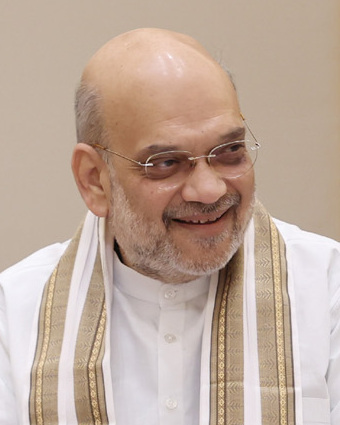
United Nations – India’s Minister of Home Affairs and Minister of Cooperation, Amit Shah, presented in a video message India’s success story with Cooperatives and the major steps taken towards increasing their efficacy.
Shah was speaking July 28, 2025 at the event “Cooperatives and Sustainable Development: Keeping the Momentum and Exploring New Pathways” held in celebration of the International Year of Cooperatives 2025 at the UN headquarters in New York.
Organized by the Permanent Mission of India to the United Nations, in collaboration with the Permanent Missions of the Republic of Kenya and Mongolia, and attended by representatives of UN member states, UN agencies, senior government officials, cooperative leaders, and other key stakeholders from around the world, the event accentuated the socio-economic contributions of cooperatives and ways to sustain them in future.

Dwelling on the success of Cooperatives in India, Shah said Indian cooperative system is a community-driven system which has spread with help of technological innovation to sectors including agriculture, healthcare, education, finance, energy, consumption, construction, rural empowerment and digital services.
“Its unique strength lies in the fact that it delivers benefits at the local level while also becoming a powerful medium for providing dignified livelihoods in rural and underdeveloped areas,” Shah said.
Elaborating their success, Shah said Cooperatives have contributed immensely to development in India and made active partners and stakeholders of women, youth and the marginalized.
However, there are certain pre-requisites for their success, intention to work hard being of the uppermost importance for bringing together individual strengths into a collective societal strength, Shah said.
Shah then listed the steps India has taken towards increasing the effectiveness of Cooperatives.
(1) Setting up the Ministry of Cooperation in 2021 overseeing more than 840,000 cooperative societies in the country and their more than 320 million active members. This model continues to offer a clear and strong identity to India’s concept of inclusive development on the global stage, Shah said.
(2) Adaptation of “Sahkar Se Samriddhi” (Prosperity through Cooperation) movement into a people’s movement which empowers India’s villages, women, youth, and farmers.
(3) Establishment of Tribhuvan Sahkari University to serve as national hub for education, research, innovation, and leadership development in the cooperative sector.
(4) Formulation of the National Cooperation Policy to make India’s cooperative movement transparent, accountable, and future-oriented.
(5) Implementation of the world’s largest grain storage plan to strengthen food security through ensuring organized markets and increased prices for farmers.
(6) Setting up 3 multi-state cooperative societies to provide farmers with direct access to global markets, quality inputs, branding, marketing and a fair share in export profits:
- a) Bharatiya Beej Sahkari Samiti Limited (BBSSL),
- b) National Cooperative Organics Limited (NCOL), and
- c) National Cooperative Exports Limited (NCEL).
Embodying thus the core principles of circular economy, India’s Cooperatives are not just successful, but also sustainable, Shah said. Illustrating further, Shah said, Cooperative institutions are promoting models based on reuse, recycling, and collective use of resources. Environmental stability and resource efficiency are facilitated by organic farming, community biogas plants, and waste management, Shah added.
In this connection, Shah quoted Prime Minister Narendra Modi at the inauguration of the International Year of Cooperatives 2025 in New Delhi: “India believes that Cooperatives can bring new energy to global collaboration. Especially for the Global South, where special development models are needed, Cooperation can play a vital role. Therefore, we must move forward with new ideas and new pathways of global cooperation.”
At the outset, Shah reaffirmed India’s resolve to continue working together, through cooperation, for an inclusive, sustainable, and human-centered development.
India’s Permanent Representative to the UN, Parvathaneni Harish, in his opening remarks highlighted the important role Cooperatives have been playing in India’s development for more than 120 years.
Reiterating the steps taken by the Government of India to strengthen the cooperative sector, including the National Cooperative Policy 2025-45, Harish discussed the need to make cooperatives more effective through the use of new and emerging technologies including Artificial Intelligence.
Managing Director of National Agricultural Cooperative Marketing Federation of India Ltd (NAFED), Deepak Agarwarl, made a presentation on the Indian cooperative sector highlighting the spirit of collaboration and shared ownership.
Speaking on the occasion, Cynthia Samuel-Olonjuwon, Special Representative to the United Nations and Director of International Labor Organization Office for the United Nations, also emphasized the need to promote cooperatives for inclusive sustainable growth.
Other speakers at included Permanent Representative of Kenya Erastus Ekitela Lokaale, Permanent Representative of Mongolia Ankhbayar Nyamdorj, Deputy Permanent Representative of Colombia Raúl Esteban Sánchez Niño and President of International Cooperative Alliance (ICA) Ariel Enrique Guarco on a video message.
These speakers stressed, among other things, the need for international forums like the upcoming 2nd World Social Summit on Development to raise awareness about the socio-economic contributions of cooperatives and steps to further enhance their effectiveness.



